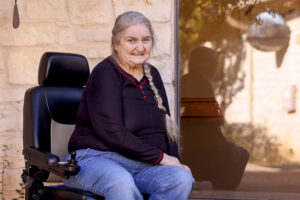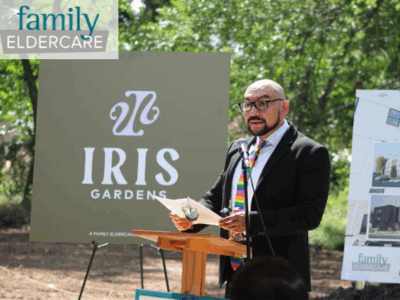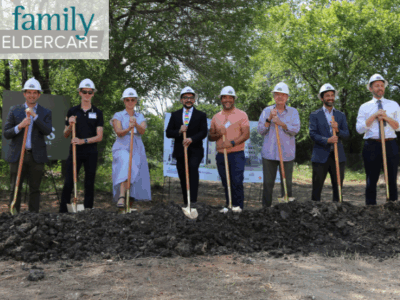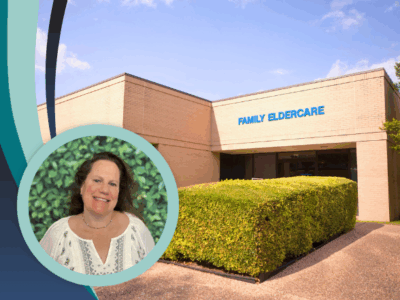October 7, 2022
Today we honor Ageism Awareness Day to bring attention to the discrimination and prejudice older adults face on a regular basis. Family Eldercare programs strive to bring dignity and inclusion to every person we serve. Promoting dignity and inclusion must include breaking the stigma associated with getting old and instead embracing aging as a part of our shared human experience.
Aging, the process of growing old, happens to all of us. Yet many of us view aging negatively, which can lead to ageism. But what is ageism? Medical News Today reports, “Ageism is prejudice or discrimination against people based on their age. It typically applies to people who are older but can also affect young people. Ageism has a negative impact on physical and mental health, and reports link it with earlier death.”
This thinking became more common in the mid-1970’s after Dr. Robert Butler coined the term ageism. Age discrimination continues today. AGE of Central Texas performed a survey in 2019 that reported,
“Nine out of 10 Central Texans responded that it’s very likely or is somewhat likely that ageism exists because older adults’ experiences and wisdom are undervalued or undercelebrated in the U.S.”
What does ageism look like in real life? Medical News Today states, “treating family members as though they are invisible, unintelligent, or expendable,” or “disregarding someone’s concerns or wishes due to their age” are both harmful examples of ageism in everyday life.
The World Health Organization suggests three ways to combat ageism:
- education to dispel myths and stereotypes and raise awareness of the impact of ageism;
- intergenerational interventions, which create cooperation and empathy between age groups; and
- law and policy changes, which can reduce inequity and discrimination.”
Family Eldercare seeks to combat ageism. Our annual 80 Over Eighty event celebrates the rich diversity of Central Texans age 80 and over. Our Lifetime Connections Without Walls services offers a way for older adults to connect and learn through phone-based and virtual activities. We advocate for the fair and equitable treatment of older adults in our community.
Because aging, is in fact, life itself.

Check out some of our Family Eldercare events and services:
Family Eldercare’s 80 Over Eighty Celebration
Lifetime Connections Without Walls
Living/Aging Resources:
Austin Up- https://www.austinup.org/
Aging Services Council of Central Texas- https://www.agingservicescouncil.org/
Community Positive Aging- https://www.retirementlivingsourcebook.com/
Changing the Narrative- https://changingthenarrativeco.org/


